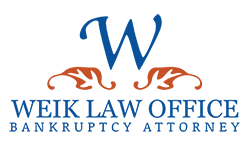GET HELP TODAY

Excessive debts and foreclosures are any individual’s worst nightmares, and filing for bankruptcy in Raleigh is the only legal way to reduce or eliminate your financial setbacks. However, the process of filing for bankruptcy is a complex one. As such, it is vital that you understand the purpose and procedure of filing for bankruptcy.
Lawful Grounds for Bankruptcy
Under Article I, Section 8, Clause of 4 of the U.S. Constitution, the Congress is granted power to create and enact uniform laws on bankruptcies throughout the United States.
Contrary to arguments in the past, Congress’s bankruptcy power is not limited to legislating only for the trader class. Since 1800, Congress constantly exercised its bankruptcy power during periods of depression or financial unrest. Starting 1898, however, the bankruptcy reform act of 1978 was introduced, followed by several reforms on Bankruptcy laws.
Recent Bankruptcy Reforms
The most comprehensive set of bankruptcy reforms for the past 25 years are the Bankruptcy Abuse Prevention and Consumer Protection Act of 2005. According to bankruptcy lawyers in Raleigh, NC, the new consumer bankruptcy provisions serve as a response to several factors including:
- Increase in bankruptcy filings
- Potential bankruptcy abuse
- Debtor’s capability to repay debt, among others
Included in these recent reforms is the introduction of Chapter 7 and Chapter 13 bankruptcy. Under Chapter 7, debtors are granted protection from creditors, allowing liquidation of certain assets to pay off their debts. Chapter 13 bankruptcy, on the other hand, allows petitioners with regular income to develop a repayment plan to repay all or a part of their debts. These two types of bankruptcies give individuals another chance to regain control over their finances.
After a legislative meeting in Q3 of 2018, the Federal Court has mandated several other reforms aside from Chapter 7 and Chapter 13:
- Implementation of required credit counseling classes before an individual can file for bankruptcy
- Mandatory financial management class to help petitioners resolve their financial difficulties
- Unsecured debt (bills, loans) not exceeding $394,725, and a secured debt not more than (car loans, mortgages) $1,184,200 when filing for Chapter 13 bankruptcy
- Mandatory credit and financial budget counseling
- Required means test to qualify for Chapter 7 bankruptcy
The court also notes that the bankruptcy exemptions may vary per state, depending on the law and conditions. The exemption system depends on where individuals have been domiciled.
Your Road to Financial Control
The legal matters surrounding bankruptcy require thorough research and professional help from knowledgeable bankruptcy attorneys. Begin your journey to financial recovery with your trusted Raleigh bankruptcy attorneys from Weik Law Office. Call us today at 919-845-7877 for a free consultation with one of our professionals.
